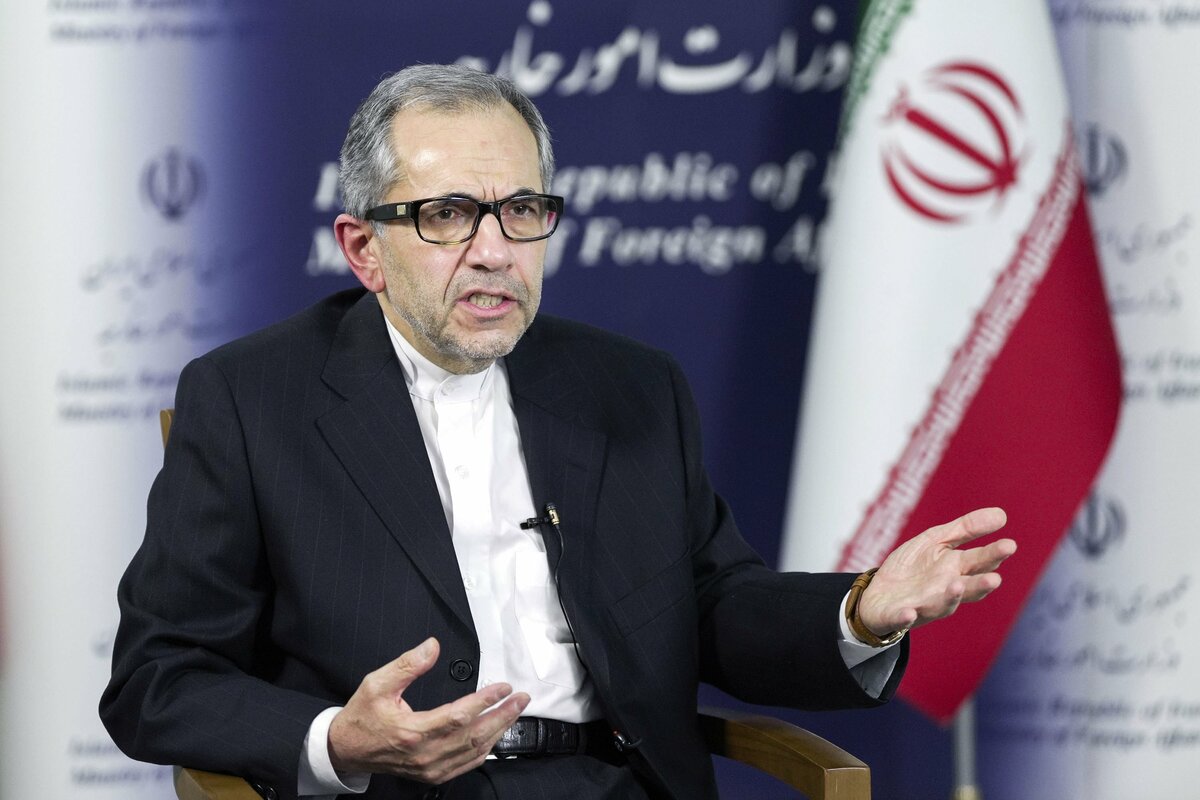TEHRAN – Iran’s deputy foreign minister said on Saturday that Tehran is prepared to accept certain limitations on its nuclear program in exchange for the lifting of economic sanctions, but ending uranium enrichment entirely is nonnegotiable.
“Iran can be flexible on the capacities and limits of enrichment, but cannot agree to stop enrichment under any circumstance because it’s essential, and we need to rely on ourselves, not on empty promises,” Majid Takht-e Ravanchi told Kyodo News in an interview.
“It’s simple and clear: if the U.S. insists on zero enrichment, then we have no deal.”
The remarks come amid a prolonged impasse in U.S.-Iran nuclear talks. U.S. President Donald Trump withdrew Washington from the 2015 nuclear deal in 2018 during his first term, under which Tehran agreed to curb nuclear activities in return for sanctions relief.
Trump has repeatedly vowed to prevent Iran from acquiring a nuclear weapon.
According to Iranian officials, efforts to revive negotiations were derailed in mid-June when Israel carried out air strikes in Iran, killing a nuclear scientist and senior military commanders.
On June 22, U.S. Air Force B-2 bombers struck three major Iranian nuclear facilities that were all under International Atomic Energy Agency safeguards.
Tehran denounced the attacks as violations of international law aimed at undermining diplomacy.
“For talks to continue, Washington must guarantee that it will not attack Iran again if negotiations resume,” Ravanchi said.
Uranium enrichment remains the core subject of the dispute with the United States, which has demanded an end to the activity.
Iran has increased enrichment levels to 60 percent — short of weapons-grade, but far above the 3.67 percent limit set under the 2015 accord.
Ravanchi reiterated that both zero enrichment and curbs on Iran’s missile program are “out of the question,” though Tehran could agree to temporary limits on its peaceful nuclear activities as part of a “win-win, fair deal.”
Ravanchi accused Washington of “tricking” Tehran by entering talks while simultaneously participating in military action.
“The U.S. needs to clarify whether it is genuinely interested in win-win dialogue or in imposing its will,” he said.
He added that while compensation for the strikes was not a precondition for future talks, the issue would be raised during negotiations.
“The U.S. attacks on Iran’s nuclear facilities were illegal and caused serious damage. We have every right to seek compensation.”
Despite the escalation, Ravanchi said diplomatic channels remain open through intermediaries.
“Iran is prepared to engage in dialogue with the U.S.,” he said, but warned that renewed American threats would be met with firm defense.
Britain, France, and Germany have warned that if no progress is made by the end of August, they will push to reinstate U.N. sanctions lifted under the 2015 deal.
Ravanchi dismissed the deadline as “unilateral,” but confirmed Tehran’s willingness to continue talks with European powers.
He stressed that Iran’s nuclear program “will remain peaceful” and that Tehran is prepared to cooperate with the U.N. nuclear watchdog to ensure safe and transparent inspections, including at facilities damaged in the recent strikes in accordance with new guidelines to be agreed with the IAEA.
Iran has repeatedly said its nuclear activities are for civilian purposes such as energy generation and medical research, while Western powers have long suspected it is seeking the capability to produce nuclear weapons.
Japan, a long-time economic partner of Iran, joined other Group of Seven members in backing Israel and criticizing Tehran at the group’s June summit in Canada. Ravanchi described the move as “unfair” and a “negative political shift” in bilateral relations.
